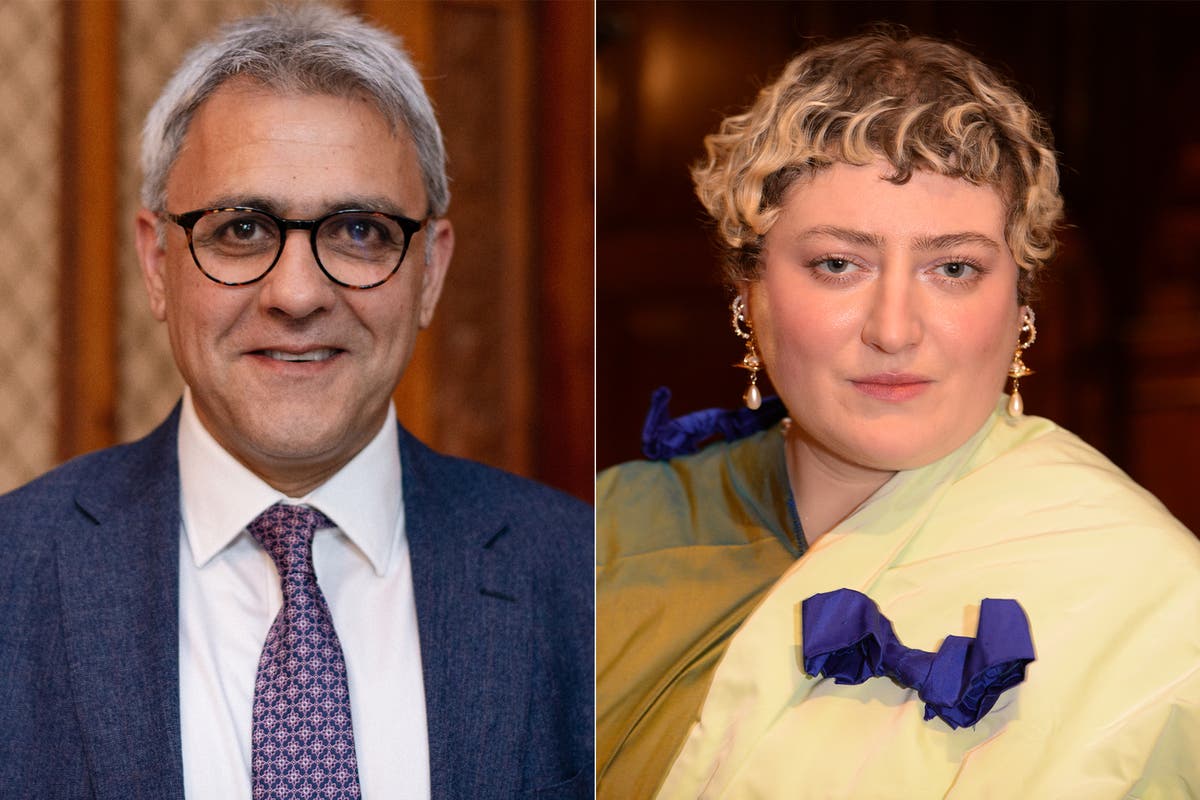The Royal Society of Literature is embroiled in chaos after two of its chiefs announced their departure amid a series of scandals and bitter in-fighting.
Director Molly Rosenberg has resigned from the 205-year-old organisation, home of Britain’s most outstanding literary talents, as its chair, Daljit Nagra, announced he would step away as his four-year-term concludes this month.
The decisions followed months of rows over freedom of speech and come amid accusations the RSL has lowered its standards of membership.
Dozens of high profile writers including Margaret Atwood, Kazuo Ishiguro and former president of the society Dame Marina Warner have all criticised its current leadership.
The society’s ‘civil war’ is thought to have begun when calls for it to robustly publicly support Salman Rushdie in the wake of his attempted murder were reportedly quietly blocked.
open image in gallery75th National Book Awards (2024 Invision)
Warner told The Times earlier this year that she had called for the society to speak out, however the then newly appointed president and Booker Prize winner Bernardine Evaristo allegedly told her the move “might give offence”.
In an article in the Guardian last year, which does not specifically mention Rushdie, Evaristo insisted that the society “cannot take sides in writers’ controversies and issues, but must remain impartial.”
Rushdie himself waded in on the assertion, posting on X: “Just wondering if the Royal Society of Literature is “impartial” about attempted murder.”
Members have also shared frustrations over the society’s failure to support author Kate Clanchy after she faced a barrage of online abuse.
In a further row over free speech, members have claimed that the society postponed the publication of its annual magazine due to an article commenting on Israel and Gaza – though the RSL has repeatedly denied this and said a “number of issues with the editorial choices of the freelance editor overseeing the issue, as well as its design,” was to blame.
In the Guardian article, Evaristo asserted: “As for the society’s magazine, the RSL Review, its publication was postponed, and it will appear soon, in full. Accusations of censorship and cancellation are unfounded.”
In February 2024, the RSL reffered itself to the Charity Commission following complaints and a governance review by the National Council for Voluntary Organisations was also commissioned.
open image in galleryBernardine Evaristo will be among those at the festival (David Parry/PA) (PA Archive)
The RSL’s management is still facing concerns over its supposed diluting of its admittance criteria in a bid to boost diversity.
One writer, Don Paterson, alleged to The Times that the longstanding rule that fellows could only be nominated if they had two published works of “outstanding literary merit” had been overlooked.
The RSL said that criteria for consideration as a Fellow have not changed. However, novelist Amanda Craig also told The Times that the society “no longer the kind of distinction that it was”.
In 2018, the RSL appointed 40 new fellows under the age of 40,though Evaristo has noted this still makes up only 4 per cent of its membership.
It also elected 60 fellows though its RSL Open scheme, an initiative striving to recognise writers from underrepresented backgrounds in 2022 and 2023. More recently, it launched a new election process inviting members of the public to nominate writers for fellowship.
Evaristo wrote last year that the “media myth” that she had “and insisted on all kinds of ‘radical’ new measures being implemented” as president was “massively insulting to previous RSL trustees, chairs and fellows who supported diversifying the fellowship”.
She added: “The charge of lowering standards is a familiar tactic leveraged by those invested in the status quo. So, are recent appointees “not good enough”? Why wouldn’t they be, given that they are chosen in the same way as ever, through the fellowship democratic process?”
Upon his resignation Nagra, who took up his position four years ago, said he “look[ed] forward to watching the RSL continue to grow and prosper,” as he said he was “proud to have overseen the first ever governance review in our 204-year history” to “increase transparency” in the society’s future.
Rosenberg, who joined the RSL in 2010 as an intern and took on the role of Director in 2017 said: “I am hugely proud of all that I have achieved in my time at the RSL, working for and with brilliant writers across the Fellowship.”
The Independent has contacted RSL for comment.
